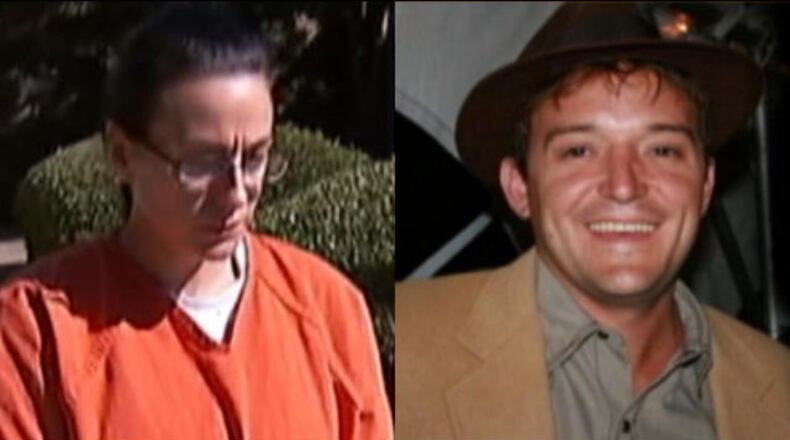Certitude has been elusive in the trial of an East Atlanta woman accused of fatally shooting her ex-fiance.
The state, challenging Victoria Rickman’s claim that she killed Will Carter in September 2013 after he attacked her, has argued that forensic evidence doesn’t indicate a rape took place. But, as a defense expert testified this week, a lack of such evidence doesn’t necessarily mean a sexual assault didn’t occur.
“Consensual sex or violence? That’s what this case is about,” prosecutor Sheila Ross said.
RELATED: Trial of East Atlanta woman hinges on self-defense claim
It’s a question jurors must answer without any eyewitnesses or smoking guns as they await closing arguments on Friday. Credibility, more than evidence, is likely to be the biggest factor in their decision.
Prosecutors have described a pattern of allegedly false accusations by Rickman against Carter and a previous boyfriend, William Plunkett, who testified that she threatened to tell police he raped her. Yet despite that threat, Plunkett continued to profess his love for Rickman, an apparent contradiction the defense seized upon.
On Thursday, three friends of Rickman testified they saw bruises on her body between Aug. 2012 and Sept. 13 the following year — the day Carter was killed.
Her best friend, Britni Morgan, recalled overhearing a heated conversation between Rickman and Carter.
“I could hear her on the phone with him in the kitchen screaming,” Morgan said. “Just being … degrading, really.”
Prosecutors asked why none of those friends contacted police.
“It wasn’t my place” to call police, Jeremy Fordham testified. He said he told her to stay away from Carter, however, because “he doesn’t sound like a good character.”
Morgan did testify that she and Rickman talked the morning of Carter’s death about going to police to seek a temporary protective order. But that afternoon, Morgan acknowledged under cross-examination, she told Rickman to delete all texts between them.
One thing is certain: Rickman and Carter had a volatile relationship, with each alleging violent acts against the other.
Four months before the fatal shooting, a warrant was issued for Rickman’s arrest on charges of trespassing, battery and family violence after she allegedly entered Carter’s home and attacked him, leaving cuts and scratches on his face, neck and arms.
In January 2012, Carter was charged with sexual battery after Rickman alleged he held her down and groped her without consent, telling her “I’ll do what I want,” the arrest warrant stated.
Prosecutors have hinted that Rickman killed Carter because she was upset that he wouldn’t drop the battery allegation against her.
But how big of a threat was Carter to Rickman?
Testifying for the defense, Acworth therapist Kay Falk, who had met with the couple about a year before the shooting. said she found Carter’s behavior erratic. “It kind of fluctuated between calmness and more of an agitated stage,” said Falk, though that characterization was not in her written reports following her evaluation of Carter.
Smyrna psychiatrist John Lochridge said Carter, a patient for three years, suffered from delusions. Three days before his death, Carter told Lochridge he believed his TV set was talking to him. “He said he thought he was famous, he was on TV, he was talking through the TV,” Lochridge testified.
Such hallucinations are rarely an indicator of violence, he said.
When the defense asked if Carter’s delusions could have led him to believe sex with Rickman was consensual, Lochridge was more equivocal. “Anything is possible,” he said.
Rickman declined to take the stand in her own defense, though she had previously stated a desire to testify.
STAY IN THE KNOW: Sign up for the AJC’s crime and public safety newsletter delivered to your inbox
About the Author
The Latest
Featured



